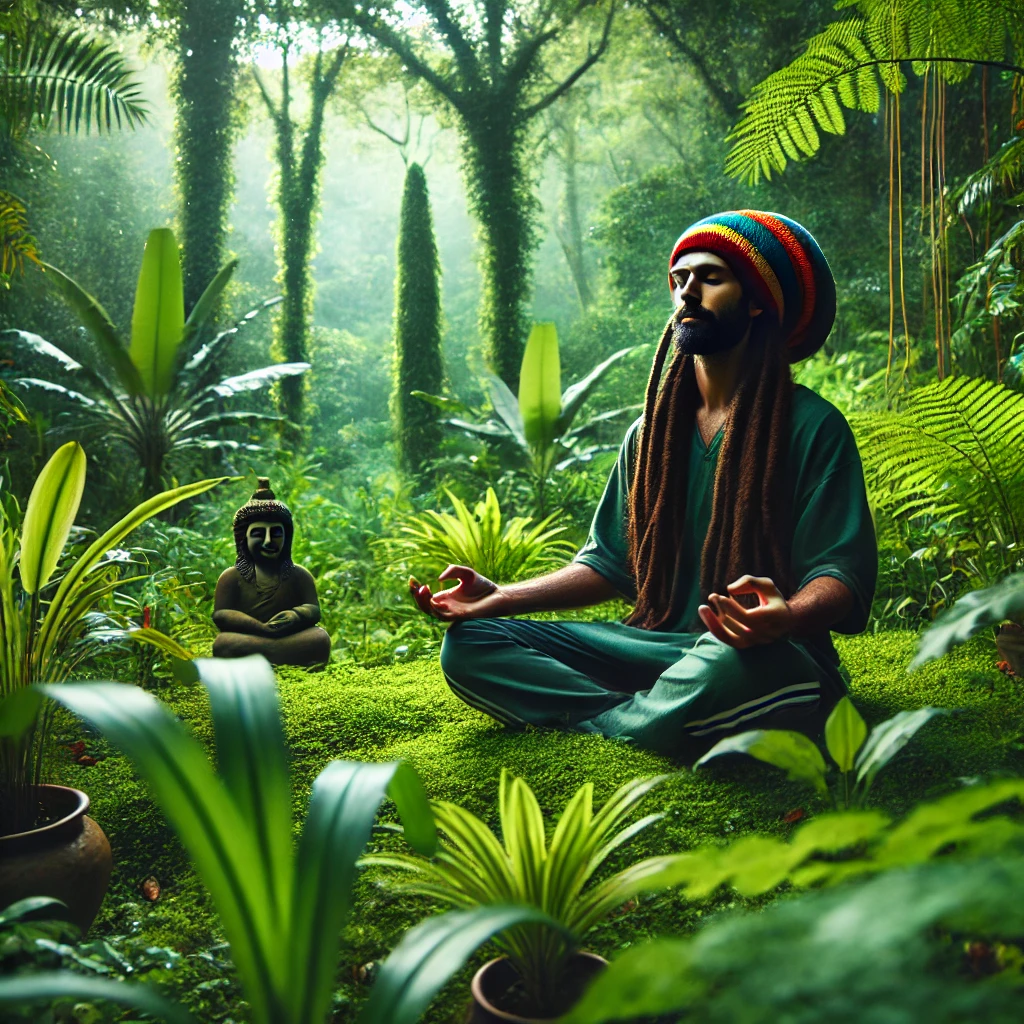Bless up, my brethren and sistren! Today, we explore the holistic approach Rastafarians take towards mental health and wellness. Mental well-being is deeply intertwined with spiritual and physical health in Rastafarian culture, emphasizing a harmonious balance that nurtures the mind, body, and soul.
Spiritual Connection
At the heart of Rastafarian mental health practices is the deep spiritual connection to Jah (God). Daily prayers, meditation, and chanting help to center the mind and uplift the spirit. This connection provides a sense of purpose and inner peace, fostering resilience against life’s challenges. Rastafarians believe that maintaining a strong bond with Jah is crucial for mental clarity and emotional stability.
Ital Living
A significant aspect of mental wellness in Rastafarian culture is the practice of Ital living. Ital means natural, pure, and clean. Consuming a diet rich in fresh fruits, vegetables, and whole grains helps to nourish the body and mind. Avoiding processed foods and substances considered harmful promotes overall health and reduces stress levels. Eating Ital not only supports physical health but also enhances mental well-being by keeping the mind clear and focused.
Music and Healing
Music, especially reggae, plays a vital role in Rastafarian culture and mental health. The soothing rhythms and powerful lyrics of reggae music offer a form of emotional expression and healing. Listening to and creating music provides an outlet for stress relief and emotional release. Reggae music, with its messages of love, unity, and social justice, also inspires positive thinking and a sense of community.
Reasoning Sessions
Reasoning sessions are communal gatherings where Rastafarians come together to discuss spiritual, personal, and social issues. These sessions provide a supportive environment for sharing experiences, seeking advice, and gaining new perspectives. Open and honest communication during reasoning sessions fosters a sense of belonging and emotional support, which is essential for mental health. The collective wisdom shared in these gatherings helps individuals navigate life’s difficulties and find solutions.
Nature and Healing
Nature holds a sacred place in Rastafarianism, and spending time in natural surroundings is seen as essential for mental wellness. Whether it’s meditating under a tree, walking by the beach, or tending to a garden, connecting with nature helps to reduce stress and promote inner peace. The tranquility of natural settings allows for reflection, relaxation, and a break from the hustle and bustle of modern life. Nature’s healing power is a cornerstone of maintaining mental balance in Rastafarian culture.
Physical Activity
Physical activity is another crucial component of mental health for Rastafarians. Engaging in regular exercise, such as drumming, dancing, or yoga, helps to release endorphins and improve mood. Physical movement is not only beneficial for the body but also for the mind, as it helps to reduce anxiety and increase overall well-being. Drumming, in particular, is a rhythmic and meditative practice that can induce a state of flow and mindfulness.
The Role of Ganja
In Rastafarian culture, the use of ganja (cannabis) is considered a sacrament that aids in meditation and spiritual enlightenment. It is believed to help open the mind, facilitate introspection, and enhance connection with Jah. When used responsibly and with respect, ganja can provide mental clarity and emotional relief. It is important to note that its use is deeply spiritual and should be approached with mindfulness and reverence.
Community and Support
The sense of community and mutual support is fundamental to Rastafarian mental health. The tight-knit community structure ensures that individuals have a network of support during times of need. Celebrations, rituals, and communal activities strengthen these bonds and create a sense of unity. Knowing that one is part of a supportive and caring community provides comfort and reassurance, which is vital for mental wellness.
Conclusion
Rastafarian perspectives on mental health and wellness emphasize a holistic approach that integrates spiritual, physical, and emotional well-being. By maintaining a strong spiritual connection, living naturally, engaging in music and community activities, and respecting the healing power of nature, Rastafarians cultivate a balanced and harmonious life. These practices offer valuable insights into maintaining mental health in a holistic and integrated manner.

